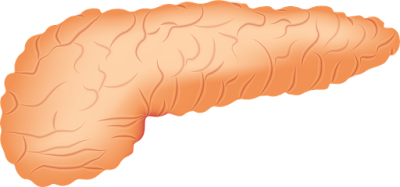How to prevent hemorrhoids?
Diet and exercise for hemorrhoids
Hemorrhoids is a fairly common disorder of the blood vessels, which usually affects people leading a sedentary life.
Prevention of hemorrhoids
First of all you need to secure a move, because physical activity stimulates peristalsis, and this will facilitate defecation and help eliminate constipation.
It should also help yourself by using a diet rich in raw vegetables and wholemeal products. Do not forget also to drink about 2.5 liters of fluid a day.
Note! When a problem arises it is necessary to consult a doctor.
He will help you choose the best method to remove hemorrhoids.
One of the latest is a method Longo, which lies in the fact that with the help of a special device called. stapler, part of the mucous membrane is removed and with it the vessels that bring blood to the hemorrhoids.
After a few weeks of nodules włóknieją and cease to be a problem.
Which may lead to hemorrhoids?
First of all:
- improper diet, and thus long-term diet low in fiber, because it is largely responsible for the structure and consistency of stool excreted, cause constipation, which in turn by the strong pressure for returning irritant and increasing the formation of hemorrhoids;
- irregular bowel movements that cause congestion around the anus , and this favors the enlargement of hemorrhoids;
- sedentary lifestyle, and lack of physical activity, because the lack of movement hinders good circulation and promotes the formation of hemorrhoids;
- standing or sitting position, because too long to remain in it also leads to disturbances;
- physical work that requires a lot of effort;
- menu: spicy meals, a large amount of drugs, alcohol in large quantities, a small amount of fluid you drink;
- pregnancy and childbirth;
- certain chronic diseases, such as cirrhosis of the liver (30% of cases!), heart failure;
- frequent diarrhea or vomiting;
- rectal cancer;
- hypertension, which has an adverse effect on blood circulation;
- genetic predisposition, because the tendency to hemorrhoids can be inherited, it happens inherent weakness of the anal sphincter muscle;
- inflammation, particularly chronic, due, among others. by the bacterium Escherichia coli.
Symptoms of hemorrhoids
The most common symptoms that may suggest to us hemorrhoidal disease include:
- annoying itching and burning sensation around the anus;
- feeling that around the anus are constantly moist;
- pain that worsens when walking or seat, in addition, may mean prolapse or incarceration varicose veins;
- mucus stains left on the toilet paper or underwear;
- pain in the rectum;
- the feeling of incomplete defecation, not completely emptied;
- bleeding from the anus, at the beginning of the disease usually painless, then is causing the pain (bleeding usually occur after a bowel movement), less often during vividly red spots of blood on the toilet paper or underwear mean that it can cause hemorrhoids.
Note! Hemorrhoids are not always immediately know about yourself . Themselves do not hurt , as long as they are not inflamed or until they rise clots. Before the patient usually cause itching. In advanced cases of the disease, rectal prolapse nodules . It usually grade III and IV disease.
The protruding lump immediately introduce yourself to the anus, to prevent blood flow through the lump, and consequently clot.
Note! Such a clot causes a very strong, tough to withstand the pain of a permanent nature, which may take several days. It is a signal to urgently go to the doctor.
If the sole or dominant symptom is pain, the problem may be of a different nature.
This may be, for example:
- anal fissure, hemorrhoids prolapse and thrombosis, venous plexus the anal, rectal prolapse, abscess, anal fistula, and other less common diseases.
Because of this base to take the proper treatment is to carry out an appropriate diagnosis of the lower GI tract.
Note! By opting for self-treatment preparations available in pharmacies, can considerably impair their health leading to intractable complications.


Comments
Post a Comment